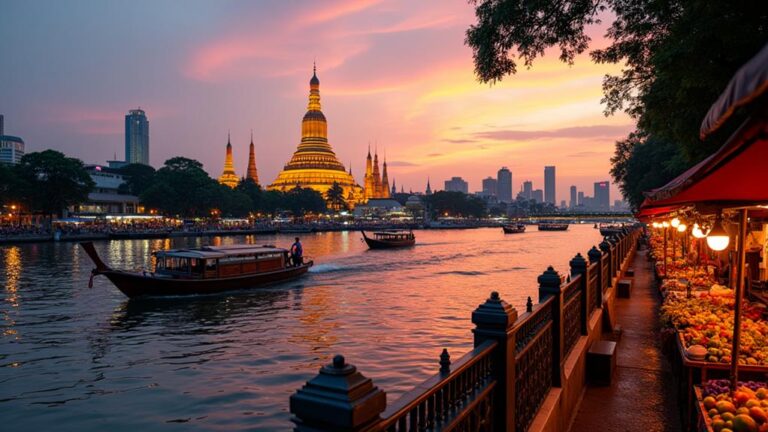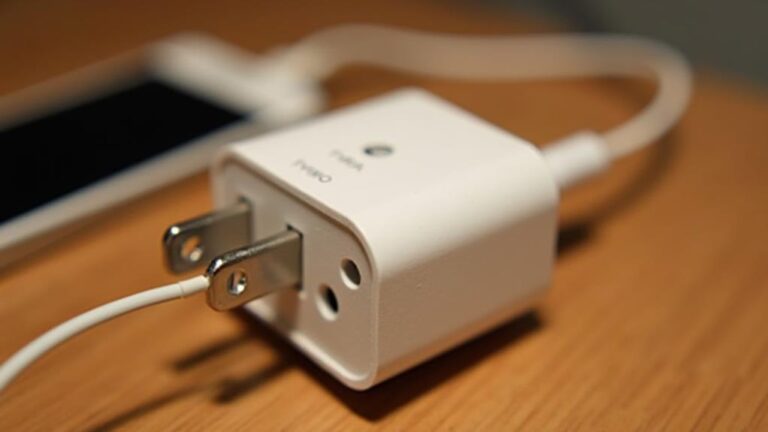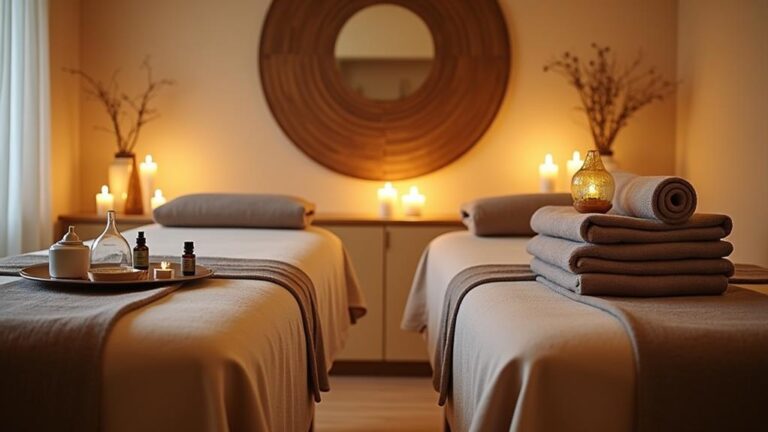You can expect to spend between $12,000 and $36,000 per year living in Thailand, depending on your lifestyle and location choices. Housing costs range from $330 to $550 monthly for a studio apartment, while food expenses can be as low as $2 for street meals or up to $20 for mid-range restaurants. Transportation, healthcare, and entertainment add to your budget, with monthly costs varying from $100 to $300 for leisure activities. Visa fees and utilities should also be factored in, with internet and phone bills averaging $30 to $80 per month. To get a detailed breakdown of living costs, it's vital to take into account all aspects of daily life in Thailand.
Table of Contents
Key Takeaways
- Rent for a studio apartment in Bangkok ranges from $3,960 to $6,600 per year.
- Food expenses can vary greatly, with street food costing $730 to $1,825 annually per person.
- Monthly transportation costs range from $156 to $863 annually, depending on preferred modes.
- Basic health insurance starts at $120 per year, with private healthcare consultations from $240 annually.
- Entertainment and leisure spending can amount to $1,200 to $3,600 per year.
Housing and Accommodation Expenses
Housing costs in Thailand vary greatly depending on location and type of accommodation. The cost of renting a 30 sq. meter studio room in Bangkok ranges from $330 to $550 per month, offering a baseline for housing expenses in the capital. If you're considering long-term accommodation, quality real estate prices start at $100,000 to $140,000 for a 45 sq. meter furnished apartment in the city.
For those seeking luxury, villas in Thailand can start at around $200,000. When renting, be prepared for landlords to request a refundable deposit equal to two months' rent, plus the first month's rent in advance. This practice impacts your initial housing expenses significantly.
If you opt for managed property services like Airbnb, expect to pay 20-50% more than traditional rental prices for similar-sized rooms. This premium reflects the convenience and flexibility of such arrangements.
To minimize accommodation costs, consider long-term rentals over short-term options. Studio room rent tends to be more affordable than larger apartments or houses. By carefully weighing these factors, you can better manage your housing expenses and make informed decisions about your living situation in Thailand.
Food and Dining Costs
Moving from housing to your daily sustenance, food and dining costs in Thailand offer a welcomed reprieve for your wallet. The country's culinary landscape presents a diverse array of options, catering to various budgets and preferences.
| Dining Option | Cost per Person | Examples |
|---|---|---|
| Street Food | $2 – $5 | Pad Thai |
| Local Eateries | $3 – $10 | Green Curry |
| Mid-range Restaurants | $5 – $20 | International Cuisine |
You'll find that local street food stalls provide the most economical option, with an average meal cost of around $3. For those seeking a more formal dining experience, mid-range restaurants offer meals between $5 to $20 per person. Local delicacies like Pad Thai or Green Curry can be enjoyed for as low as $2 to $5, allowing you to savor authentic Thai flavors without burdening your budget.
If you prefer cooking at home, you'll be pleased to know that groceries in Thailand are notably more affordable than in the United States, costing approximately 2.3 times less. This cost-effectiveness extends across various food options, making Thailand an attractive destination for those looking to minimize their food expenses while enjoying a rich and diverse culinary experience.
Transportation and Travel Expenses
Transportation costs in Thailand are notably budget-friendly, adding to the country's overall low cost of living. Your monthly transportation expenses can vary from $13 to $71.91, depending on your chosen mode of transportation.
For daily commutes, renting a motorbike is a popular and cost-efficient option, typically costing around $50 per month. If you prefer public transportation, bus fares are exceptionally inexpensive, ranging from $0.20 to $0.60 per trip.
Fuel costs in Thailand are relatively economical, making owning a vehicle more cost-effective than in many other countries. This aspect contributes to the affordability of both motorbike rentals and personal vehicle ownership.
For long-distance travel within the country, you have several options. Flights and trains offer convenient alternatives, with costs varying based on the distance traveled. When planning your annual budget for living in Thailand, it's crucial to take into account your preferred mode of transportation and frequency of travel.
Healthcare and Insurance Fees
You'll find a stark contrast between public and private healthcare in Thailand, with many expats opting for the latter due to underfunding in the public sector. Private healthcare offers affordable options, with doctor consultations starting at $20, while more intensive treatments like ICU stays can cost up to $2,876.70 per night.
For insurance, you'll encounter various choices, with basic coverage for expats beginning at $10 per month, though you should carefully consider your needs when selecting a plan.
Public Vs. Private Healthcare
When considering healthcare options in Thailand, expats face a choice between public and private systems. The public healthcare system in Thailand is underfunded and understaffed, often leading to long wait times and potentially lower quality care. As a result, many expats living in Thailand opt for private healthcare, which offers top-notch services at affordable prices.
Private healthcare facilities in Thailand provide efficient and reliable services, with consultations starting as low as $20. This makes it an appealing option for those seeking quality healthcare without breaking the bank. Additionally, private hospitals often cater to international patients, offering English-speaking staff and familiar medical standards.
To manage medical expenses effectively, it's advisable that you obtain health insurance while living in Thailand. This guarantees access to private healthcare facilities and helps cover unexpected costs. Many expats also take advantage of affordable dental care and cosmetic procedures available in private healthcare settings.
While the cost of healthcare in Thailand varies, private options generally provide better value for money compared to public services. By choosing private healthcare, you'll have access to efficient, high-quality medical care at competitive prices.
Insurance Options Breakdown
Insurance options in Thailand offer expats a range of coverage levels and price points. Health insurance costs can start as low as $10 per month for young, healthy adults without pre-existing conditions. However, insurance premiums vary based on personal circumstances and the coverage chosen, so you'll need to research options tailored to your needs.
While private medical treatment in Thailand is often affordable for expats, investing in health insurance is recommended to guarantee access to quality healthcare services and cover unforeseen medical expenses. Some expats opt to pay out-of-pocket for healthcare services, but this approach may leave you vulnerable to high costs in case of serious illness or injury.
When budgeting for insurance, consider both health and phone plan costs. Phone plans in Thailand range from $10 per month for basic coverage to $30 per month for unlimited mobile plans. By factoring in these expenses, you can create a comprehensive budget that accounts for both healthcare and communication needs.
Carefully evaluate your insurance options to find the right balance between coverage and cost, ensuring you're adequately protected during your stay in Thailand.
Entertainment and Leisure Spending

Entertainment and leisure activities in Thailand offer a wide range of options to suit various budgets and preferences. On average, you can expect to spend between $100 and $300 per month on these activities, depending on your interests and frequency of participation.
| Activity Type | Cost Range |
|---|---|
| Nightlife | $30-$50/night |
| Cultural Sites | $10-$20/visit |
| Outdoor Activities | $50-$100/excursion |
| Local Festivals | $20-$50/event |
| Monthly Total | $100-$300 |
Exploring Thailand's vibrant nightlife, particularly in cities like Bangkok, can cost you around $30 to $50 per night, including drinks and entrance fees. If you're interested in cultural experiences, visiting temples, museums, or national parks may require a budget of $10 to $20 per visit.
For outdoor enthusiasts, activities such as hiking, snorkeling, or diving can range from $50 to $100 per excursion, factoring in equipment rental. Attending local festivals and events is another way to immerse yourself in Thai culture, with a typical budget of $20 to $50 per event covering tickets, food, and souvenirs.
When planning your entertainment and leisure budget in Thailand, consider your preferences and frequency of participation to estimate your monthly spending accurately.
Visa and Legal Requirements
Understanding Thailand's visa and legal requirements is vital for anyone planning to live in the country long-term. For digital nomads, the Thailand smart visa offers a legal pathway to living and working in the country. This option provides flexibility for those seeking an extended stay while maintaining their remote work arrangements.
Long-term options for living in Thailand include a digital nomad visa, costing approximately $1,370, or the Thailand Elite Visa, priced at $18,000. These visas cater to different durations and purposes of stay, allowing you to choose the most suitable option for your needs.
To navigate the complexities of visa requirements and legal aspects, you may consider utilizing visa services. These professionals can assist in researching and applying for the appropriate visa, ensuring compliance with Thai regulations. It's vital to thoroughly understand the visa requirements before starting on your long-term stay in Thailand.
When planning your budget for living in Thailand, factor in the costs associated with obtaining and maintaining the necessary visas. By addressing these legal requirements early in your planning process, you'll be better prepared for a successful and compliant stay in the country.
Utilities and Communication Costs

You'll find that utilities and communication costs in Thailand are relatively affordable. Your monthly utility expenses, including electricity, water, and gas, will typically range from $50 to $150, depending on your usage and location.
For internet and phone services, you can expect to pay between $20 to $50 per month for basic to unlimited data packages, allowing you to stay connected without breaking the bank.
Monthly Utility Expenses
When considering monthly utility expenses in Thailand, you'll find that costs for essential services like electricity, water, and internet are generally affordable.
The average monthly cost of electricity in Thailand can range from $30 to $100, depending on your usage and location. Water bills are typically lower, ranging from $5 to $15 per month for a one-bedroom apartment.
Internet and phone bills in Thailand can cost between $20 to $50 per month, varying based on the speed and data plan you choose. Communication costs for a basic phone plan start at around $10 per month.
When you factor in all these utilities, your monthly expenses for these essential services can total around $70 to $165 on average.
To manage your Thailand living expenses effectively, consider the following:
- Monitor your electricity usage, as it can greatly impact your monthly utility expenses
- Choose an appropriate internet plan based on your needs to optimize costs
- Compare different phone plans to find the best value for your communication requirements
Internet and Phone Costs
Building on our overview of utility expenses, let's examine the specific costs associated with internet and phone services in Thailand.
Monthly phone plans in Thailand are relatively affordable, ranging from $10 to $30, depending on the level of service you require.
Home internet costs typically fall between $20 and $50 per month, with various speeds and data limits available to suit your needs.
Thailand offers a competitive market for internet providers, allowing you to choose the best plan based on your budget and requirements. If you're a digital nomad or frequent traveler, mobile data plans starting at around $5 for basic packages with limited data might be a suitable option.
In urban areas of Thailand, you'll find high-speed internet and reliable phone services widely available, supporting both residents and digital nomads. This infrastructure enables seamless connectivity for work and personal use.
When budgeting for your year in Thailand, factor in approximately $30 to $80 per month for combined internet and phone costs, depending on your usage patterns and preferred service levels. By comparing options from different providers, you can optimize your communication expenses while ensuring reliable connectivity throughout your stay.
Typical Utility Bill Breakdown
A typical utility bill breakdown in Thailand reveals a range of essential costs for residents and expats. Your monthly electricity expenses can vary significantly, ranging from $50 to $100, depending on your usage patterns and location within the country. Water bills are relatively inexpensive, typically costing between $5 and $15 per month for a one-bedroom apartment.
Communication costs, including internet and phone plans, contribute to your monthly expenses in Thailand. You can expect to pay $20 to $50 for these services, with pricing dependent on your desired internet speed and data limits. Transportation costs also factor into your overall utility expenditure, ranging from $20 to $60 monthly, covering public transportation and occasional taxi rides.
When considering your total utilities and communication costs in Thailand, budget for approximately $100 to $200 per month. This range accounts for:
- Variations in electricity usage based on climate and personal preferences
- Differing internet and phone plan requirements
- Transportation needs influenced by your lifestyle and location
Your actual expenses may fluctuate within this range depending on your specific lifestyle choices and consumption habits in Thailand.











